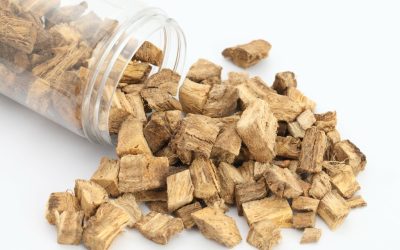Taking time to say “thank you” to your partner or even to your employees has been demonstrated to improve how you work as a team. How you feel emotionally has a big impact on your physical well-being. Daily expressions of gratitude can decrease blood pressure and stress levels. Regular positive thoughts are even linked with an improvement in your body’s ability to fight off illness. He also serves as Regional Director for the Gold-Star Referral Club in Albany, NY.
- Be grateful for a fresh start, for possibilities and opportunities.
- “The doctors kept telling me I was OK, but this thing pushing on my brain …
- The Journal of Value Inquiry,47 (3), … Continue reading What they lead back to is thankfulness for what you have and where you are in life.
Being grateful can motivate someone to take the actions needed to change their life. Practicing gratitude in recovery can help someone realize life’s difficulties can be faced with dignity. It’s a fundamental element in recovering from a drug or alcohol addiction. Positive thinking and a positive outlook can influence behavior and aid in leading a sustainable recovery-oriented life.
Essentials for Practicing Gratitude in Recovery
As you start to practice gratitude, you’ll notice the power of the words you choose. This should carry over into all the thoughts and conversations you have throughout the day. Try to eliminate negative thoughts and feelings or match them with a positive counterpart. For many, our brains have been wired and become accustomed to thinking one way—often negative. Those with addiction issues, sometimes have maladjusted ways of thinking which become habits.

For those in recovery, maintaining gratitude can help reduce risk of relapse, promote a positive mindset, and act as an important tool in managing difficult emotions or situations. Expressing gratitude can also encourage you to strive for improvement, as it reminds you of what you have already achieved and demonstrates how much more you can accomplish. By practicing gratitude during recovery, you not only boost your resilience in times of hardship but also lay the foundation for long-term success in all areas of life. People who are addicted to drugs and alcohol spend are very selfish.
Gratitude Is an Important in Overcoming Substance Abuse
When you do this, you’ll start to unconsciously and effortlessly practice gratitude throughout the day. Every day, take just a moment or two to write down a few things that make you grateful. It could be spending an afternoon with a friend or watching the sunrise.

Instead of responding to questions with “I’m sorry,” or worse, using “I’m sorry” as a greeting, like “I’m sorry I’m late,” or “I’m sorry for taking so long to email you,” say “thank you” instead. Learning about the forms of negative thinking can prepare you to combat them with a dose of gratitude. Throughout each day, be mindful of your interactions and observations of others. Be mindful of sharing your gratitude for others as they cross your path or as you observe good deeds on behalf of strangers.
Five Easy Ways to Cultivate Gratitude and Appreciation
There are plenty of ways to be generous each and every day, but recognizing the opportunities that come your way takes effort and attention. For example, if someone from your AA group needs a place to gratitude and recovery stay for a week, opening up your home is a great way to be generous. Or if you see someone struggling to carry groceries to their car, the simple act of offering a helping hand can go a long way.
- Gratitude for even the smallest courtesies can promote a consistent sense of thankfulness.
- Staying grateful during both good and bad times keeps your mindset in a consistent place.
- Replacing selfishness with gratitude can be revealed through intentional service to others by volunteering, charitable giving and even supporting others in recovery.
- It helps us to ‘sit’ with our challenges and see the opportunity it yields for improvement.
- Is co-chair of Friends of Recovery Warren & Washington RCO which educates, motivates our communities to advocate for better policies and procedures for treatment and recovery at a local, state and federal level.
- When you are mindful, you focus on the task at hand and clear away negative thoughts that may try to creep in.
In recovery, you can be grateful for the opportunity to have the freedom to pursue new hobbies, activities and goals with your newfound time. Choosing to stop using addictive substances and actively work toward recovery is a positive step. But it can be derailed quickly by those hopeless, negative thoughts, and the actions that go with them. Trapped in that mindset, an addicted person might think that there’s no point in trying to recover, because they’ll always use again.
Substance Use Treatment
Research has shown how important it is to express gratitude (if you want to be happy). Positive psychology not only impacts your mental health, but physical, spiritual and social health too. After dedicating several years to behavioral health programming and direct care, Rachel Fitzpatrick has served as a policy analyst at the NYS Office of Mental Health.
